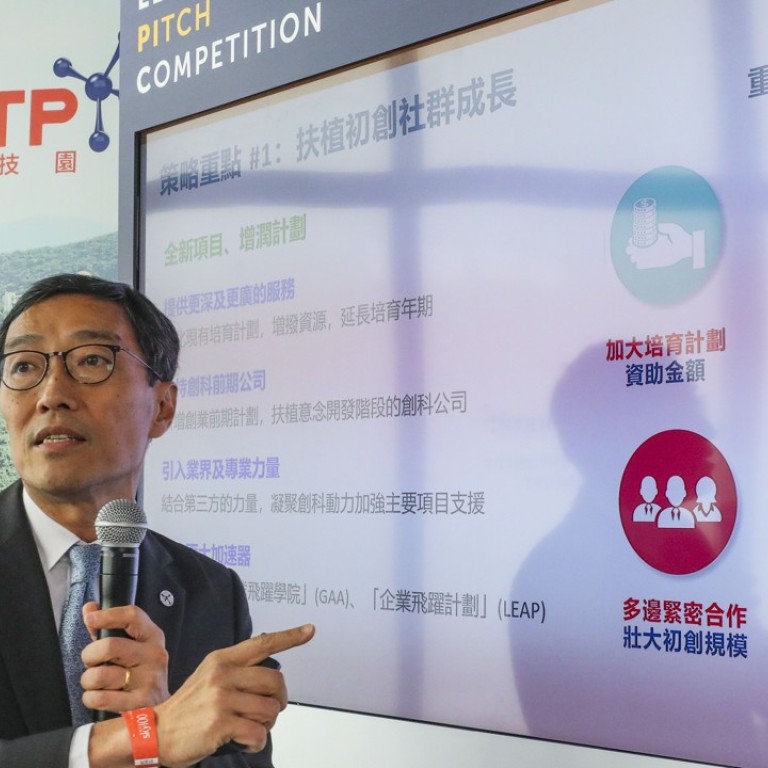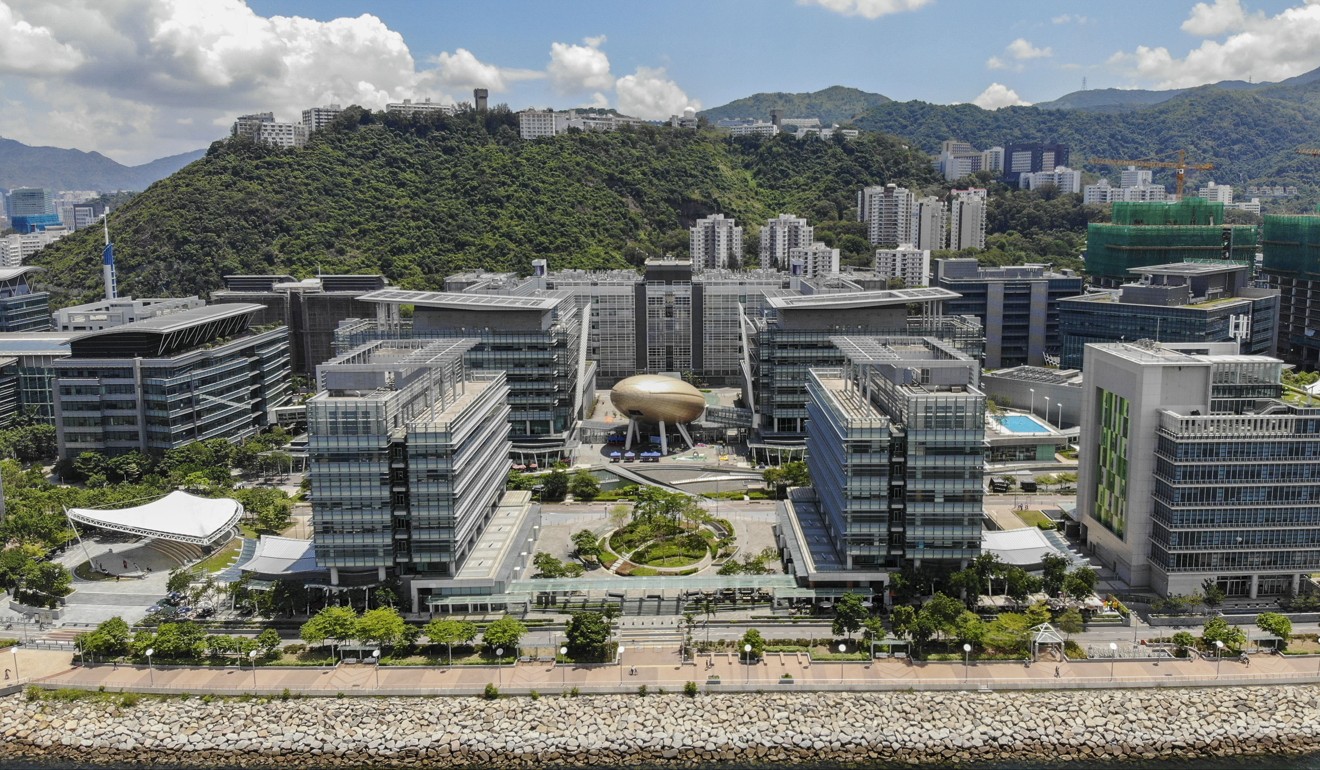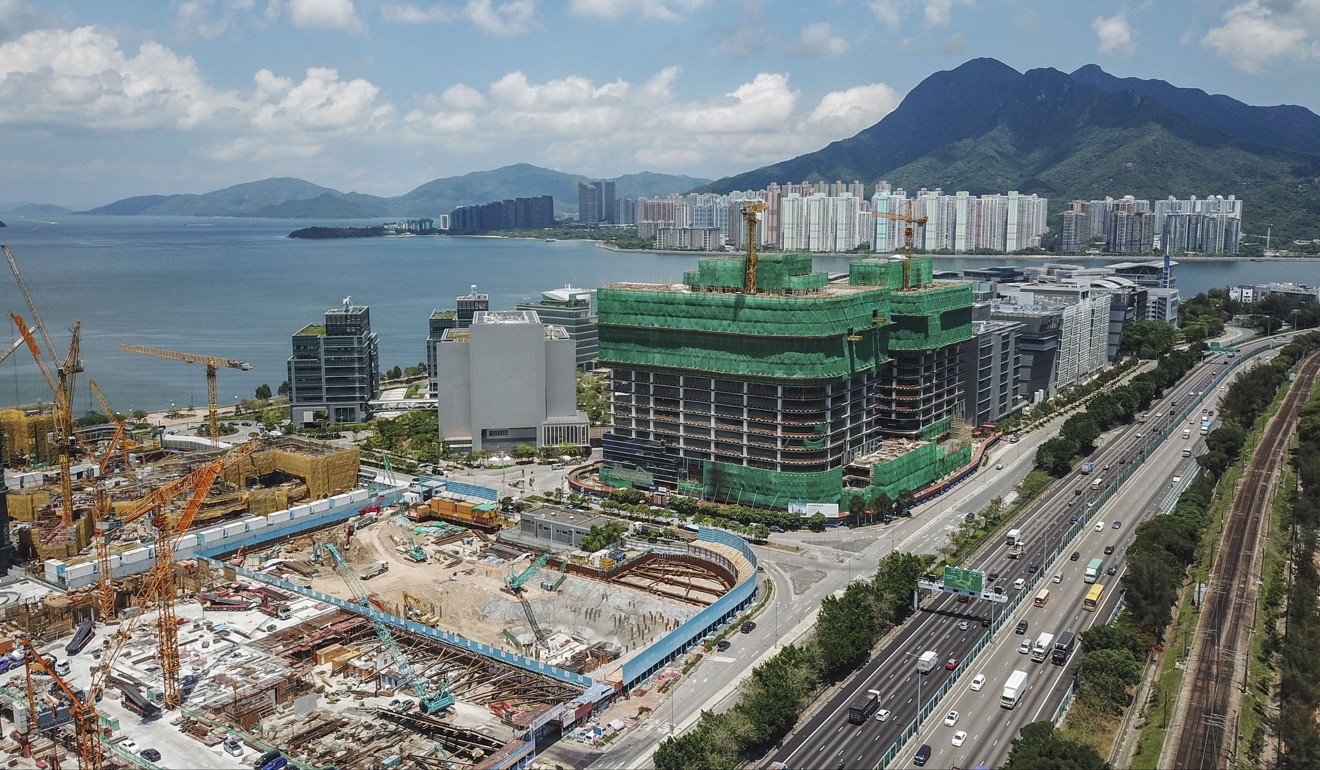
Hong Kong Science and Technology Park gives tech tenants a bonanza with US$893 million worth of measures
- Companies will be granted three-month rent exemptions with the expectation the savings will be diverted into research and development
- HKSTP aims to increase the number of start-up tenants from 270 to 500 over the next five years
Nearly HK$7 billion (US$893 million) worth of fresh measures ranging from rent exemptions to expanded subsidies will be up for grabs for hundreds of current and future tenants at Hong Kong’s innovation and technology hub, the Hong Kong Science and Technology Park (HKSTP), in the city’s latest effort to bolster its international standing in technology.
As part of the government’s HK$10 billion funding to shore up the park’s 709 tenants and upgrade its infrastructure, the measures would help tenants up their game in innovation and technology development and further improve the ecosystem, the HKSTP Corporation’s CEO Albert Wong Hak-keung said on Friday.

The sweeteners could potentially benefit about 500 start-ups in the next five years as the park seeks to increase the number from about 270 now, he said.
“If a company doesn’t have half of its staff engaged in research and development, we won’t welcome them to settle at the Park,” Wong said apologetically. “Hong Kong has so far paid the greatest effort in strengthening IT development. It will be competing and cooperating with Shenzhen.”
Hong Kong leader praises city’s science park chief – a day after it is revealed she has forced her to quit
He promised to constantly review the effectiveness of the measures.
“We hope to help companies execute their business plans, find capital and reach out to the market through our various programmes,” he said.
To ease funding needs, the first phase of corporate venture funding will be boosted to HK$200 million from the current HK$50 million.
Hong Kong’s tech ambitions given major boost with AI lab funding
“We want to encourage angel investors and venture capitalists to co-invest in the Park’s projects or start-ups from our incubation programmes,” Wong said.

If a company doesn’t have half of its staff engaged in research and development, we won’t welcome them to settle at the Park
Tenant Miles Wen, CEO of Fano Labs, which uses artificial intelligence technologies to analyse or process speech in Chinese dialects for reviewing service at call centres, said he welcomed the improved funding pools.
“In 2015, when I gave up offers in Silicon Valley in California and came back to Hong Kong to start up my company, there were not many angel funds around and the ecosystem was totally unlike now,” Wen said, adding that his company received an undisclosed amount of investments from “superman” Li Ka-shing a year ago.
The Park will also waive rents for all of its hundreds of tenants for three months, with Wong hoping they will reallocate the savings to research and development work or other business opportunities.
Tenant Federal Group Global CEO Paul Wong Hon-pong welcome the move, which means a saving of about HK$128,000 for his 1,700 square foot-office over the three-month period.
“I’d probably spend the savings on producing prototypes or taking part in trade shows,” he said. His company has developed technology to stop LED lights and signs from failing in Hong Kong’s bad weather.

